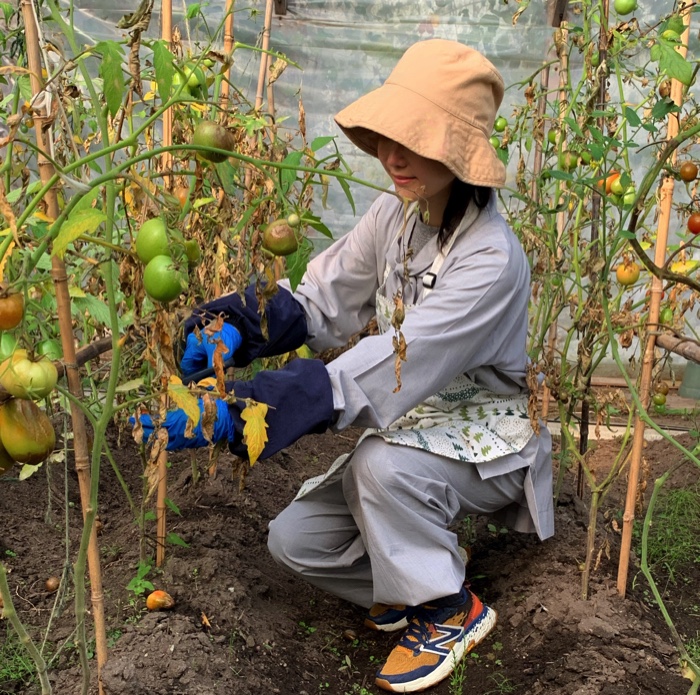Tara Lau
Sometimes in life taking a step back is what gets us perspective. It helps you see what is important, and what is pretending to be important.
I have been wanting to go to a monastery for a while to work on myself and do some spiritual searching. I longed for a respite. I needed a pause. But people are dying, people are losing loved ones and so the pause is not just a holiday. It is also a poignant time for me to think about what is important about life and how do I want to move out of this?
So I decided to set off on my spiritual quest. I contacted a monastery I have been following and arranged for a four-week stay at a Buddhist temple in Vancouver. I lived alongside with the monks and nuns abiding to their rules and way of life.
The visit is not something that would fall into the traditional meaning of a retreat or a relaxed meditation holiday where you will relax and be pampered with daily classes and activities like yoga and tai chi – this is not it. In fact, this visit is busy and requires a lot of physical and mental work – in all good ways possible. My day starts at 4am and ends at 9pm. Nuns and monks there have a very strict 16-hour day timetable that they have to follow 365 days a year.
When I walked into the monastery on the first day, I had no idea what to expect. But by the time I left, I couldn’t imagine my life without that time spent at the monastery.
Here is what my life in the monastery looked like.
4:15 Wake up
4:30 Kitchen chores
5:00 – 6:00 Morning sutra chanting
6:00 – 6:30 Preparing breakfast
6:30: Breakfast. Eating is a formal ceremony and requires chanting before the meal. We eat for 30 minutes in total silence to contemplate gratitude before we chant again to end the formalities
7:30 – 9:00 Free time
9:00 Chores for the next 2 hours. Sweeping, mopping, gardening. See what I mean by it’s not exactly a place you go to relax. My back was sore every day but all was worth it
11:30: Lunch time
14:00 Chores for two hours
16:00 – 18:00 Free time
18:30 Evening chanting
21:00 Lights off. Bedtime
The writer Sarah Manguso has said, “Time isn’t made of moments; it contains moments. There is more to it than moments.” I never understood this until I saw it in the monastery. In monastic life there’s always a next thing – another activity to devote one’s focus to over and over again. Whether I was chanting or eating a meal, I was expected to be fully present there, and then to let it go once it was over. Because the days were so structured, I was forced to become one with the moments I was experiencing; the next thing always demanded my full attention. Time is taken more seriously as a resource in a monastery, which is something I took with me after I left.
In our rampantly individualistic culture, it’s easy to prize personal freedom above all else. Yet when you live in community, the needs of the community are placed above the desires of the individual. This was incredibly challenging and freeing for me because I was often asked to forego some of my own desires for the sake of the community.
I couldn’t dash off whenever I wanted, and I was expected to be present for all community activities, so I had to become willing to sacrifice my own selfishness in order to serve others. I was a part of something larger than myself, and it meant that I had to shed some of my self-absorption for the sake of others every single day.
In fact, the grind of life can be even more present in a monastery because everyone is expected to contribute in a series of repetitive duties. Monastic life is rhythmical. All services, meals, and chores are held at specific times. This rhythm served as a great catalyst for personal transformation. In monastic life, I was taught not to separate spiritual time from normal time but to explore the vagaries of my spiritual life precisely when I was doing mundane, trivial work. This turned out to not only be enriching but life-changing.
My moments of greatest peace and transcendence came when I was cleaning out the kitchen or raking leaves or peeling an orange, reflecting on my infinitesimal place in the world. I learned to feel adequate in what could easily be described as an inadequate setting.
The monastic life reminded me that I should have very little time for negativity and focus on putting out more kindness, generosity and patience into this world. I am reminded every day by my teachers that when we practice oneness, our value, contribution or worth does not come from what we do. It is instead a direct reflection of the person you are being in each moment.
When you live with few possessions in a sparse, basic cell, your need for things dissipates rapidly. You become more adaptable, and you find that rather than trying to attain more, you learn to be grateful for what you already have. I found this to be liberating and beautiful.
I am deeply indebted to my teacher Venerable Guan Cheng for his selfless teaching, and I’m grateful for each and everyone at the monastery who has given me so much kindness and patience during my stay.
I didn’t rise above all of my weaknesses or transform my entire life, but that was okay. In the end, I found the courage to experience being alive differently with greater peace, simplicity and purpose. The change is subtle yet profound, and I will always carry that with me.

